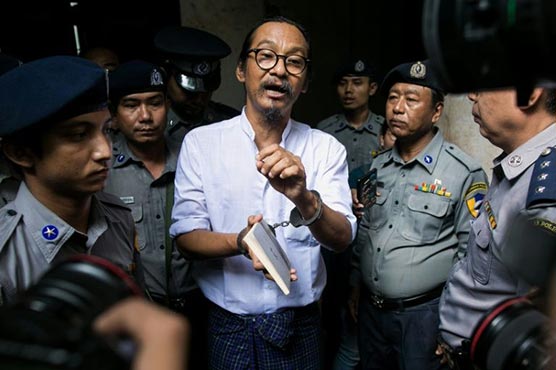Myanmar filmmaker jailed for one year after criticising military

The ruling will take into account time served since his arrest.
YANGON (AFP) - A Myanmar filmmaker was sentenced to a year in prison on Thursday for criticising the military, as free expression advocates warned of "grave threats" to those who challenge the powerful armed forces.
Min Htin Ko Ko Gyi, an activist and founder of human rights film festivals, was detained in April following a Facebook post in which he slammed the 2008 military-drafted constitution.
The charter is deeply unpopular in Myanmar as it gifts the armed services three-quarters of parliamentary seats and control of three ministries despite an ostensible transition to civilian rule.
He was sentenced under a law that criminalises incitement by publishing statements causing "fear or alarm" to the public.
"I wasn’t surprised because I expected what was coming," Min Htin Ko Ko Gyi told reporters as he was led from the Insein courthouse in Yangon.
The ruling will take into account time served since his arrest.
The free expression group Article 19 said the case was further evidence of the "grave threats faced by those who criticise the Myanmar military".
"The conviction... demonstrates the extreme vulnerability of outspoken activists and artists in contemporary Myanmar," said Matthew Bugher, head of Article 19’s Asia programme.
Min Htin Ko Ko Gyi was one of a number of activists arrested in recent months in cases that flew under the radar after the high-profile release from jail of Reuters journalists Wa Lone and Kyaw Soe Oo in May.
He was sentenced in the same place where the two reporters were convicted in 2018 of violating state secrets after revealing a massacre of Rohingya Muslims.
They were freed by presidential pardon after spending more than 500 days in jail.
The Reuters case further damaged the legacy of civilian leader Aung San Suu Kyi, who has gone from icon to pariah for failing to stand up for the persecuted Rohingya.
Myanmar is ranked 138 out of 180 countries for press freedom by Reporters Without Borders.

